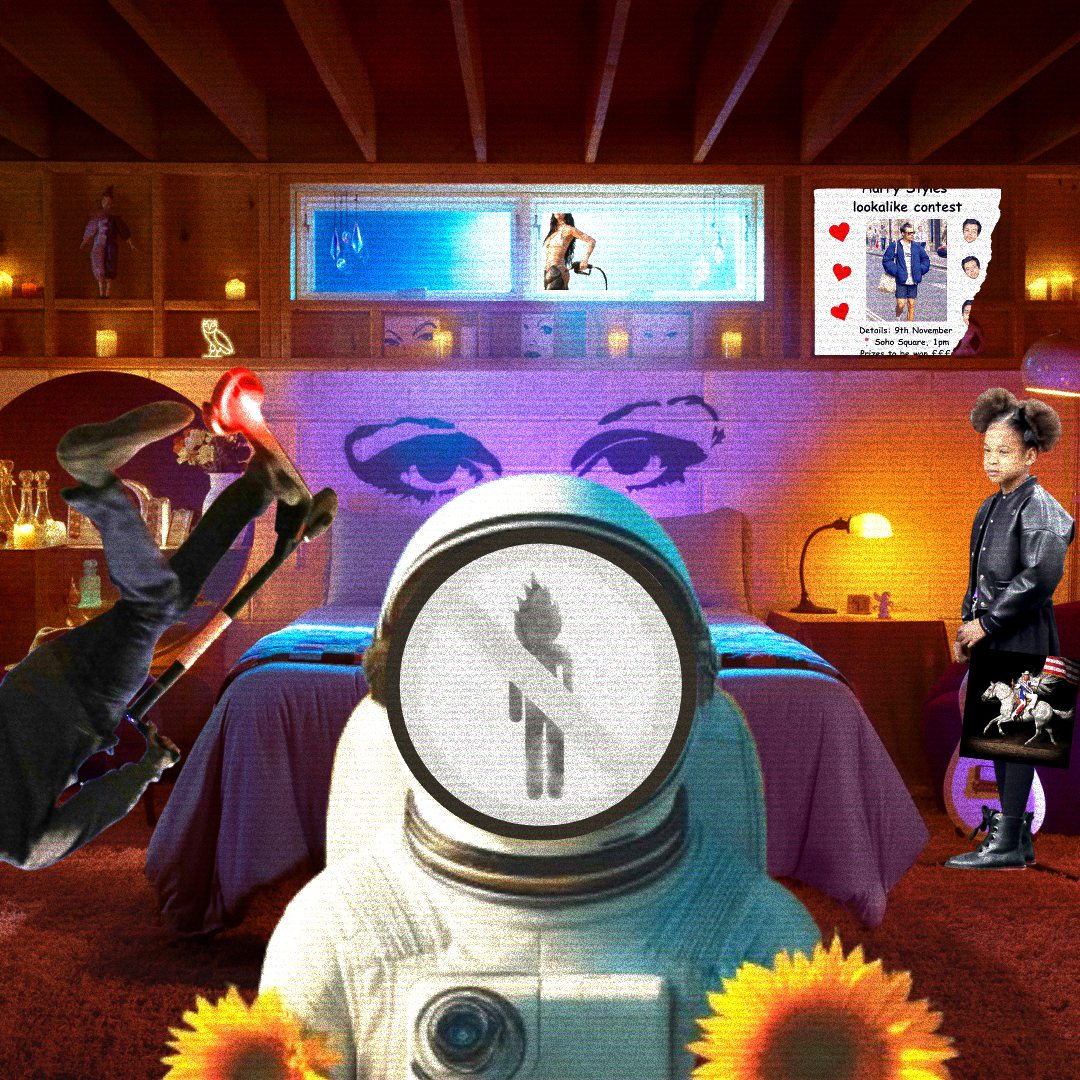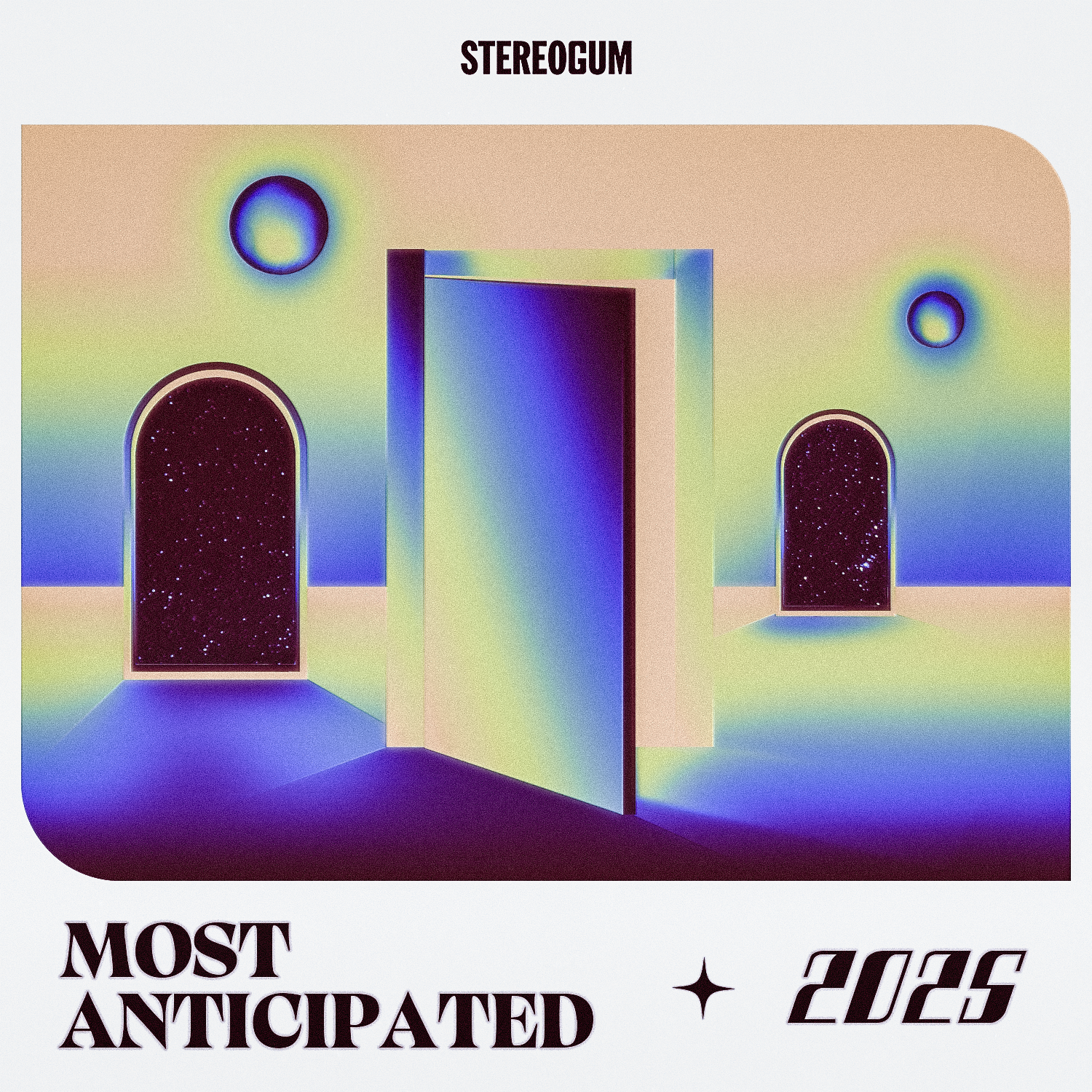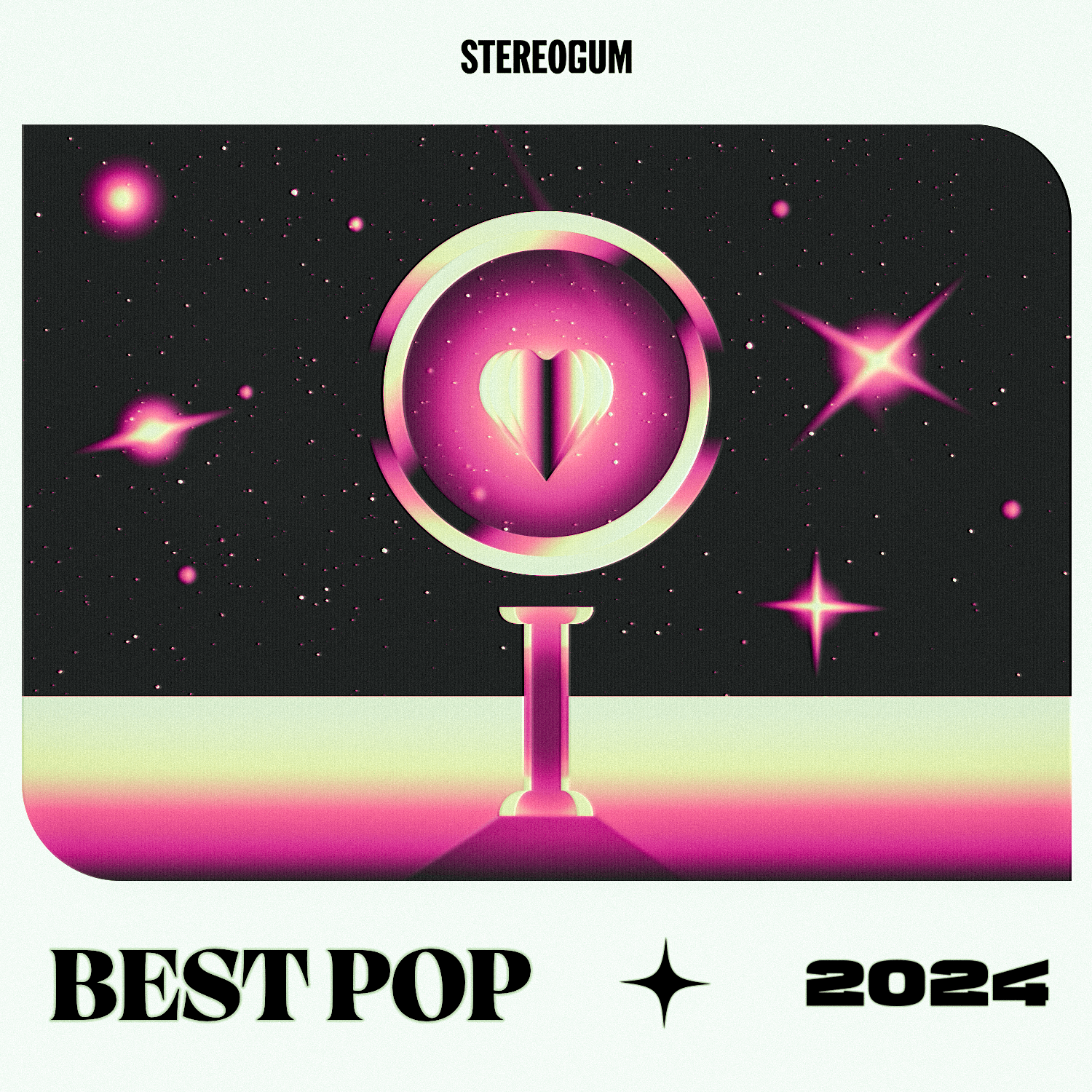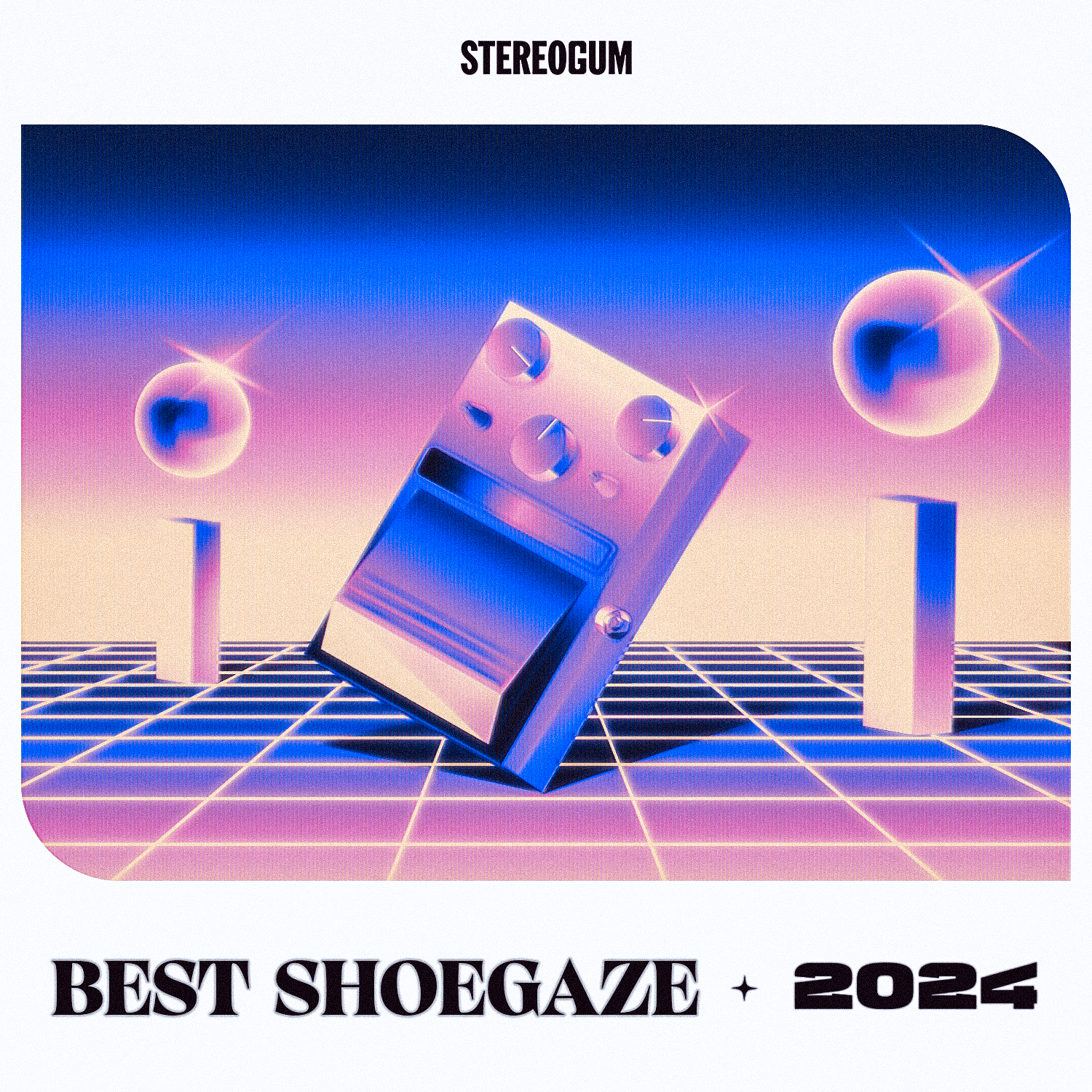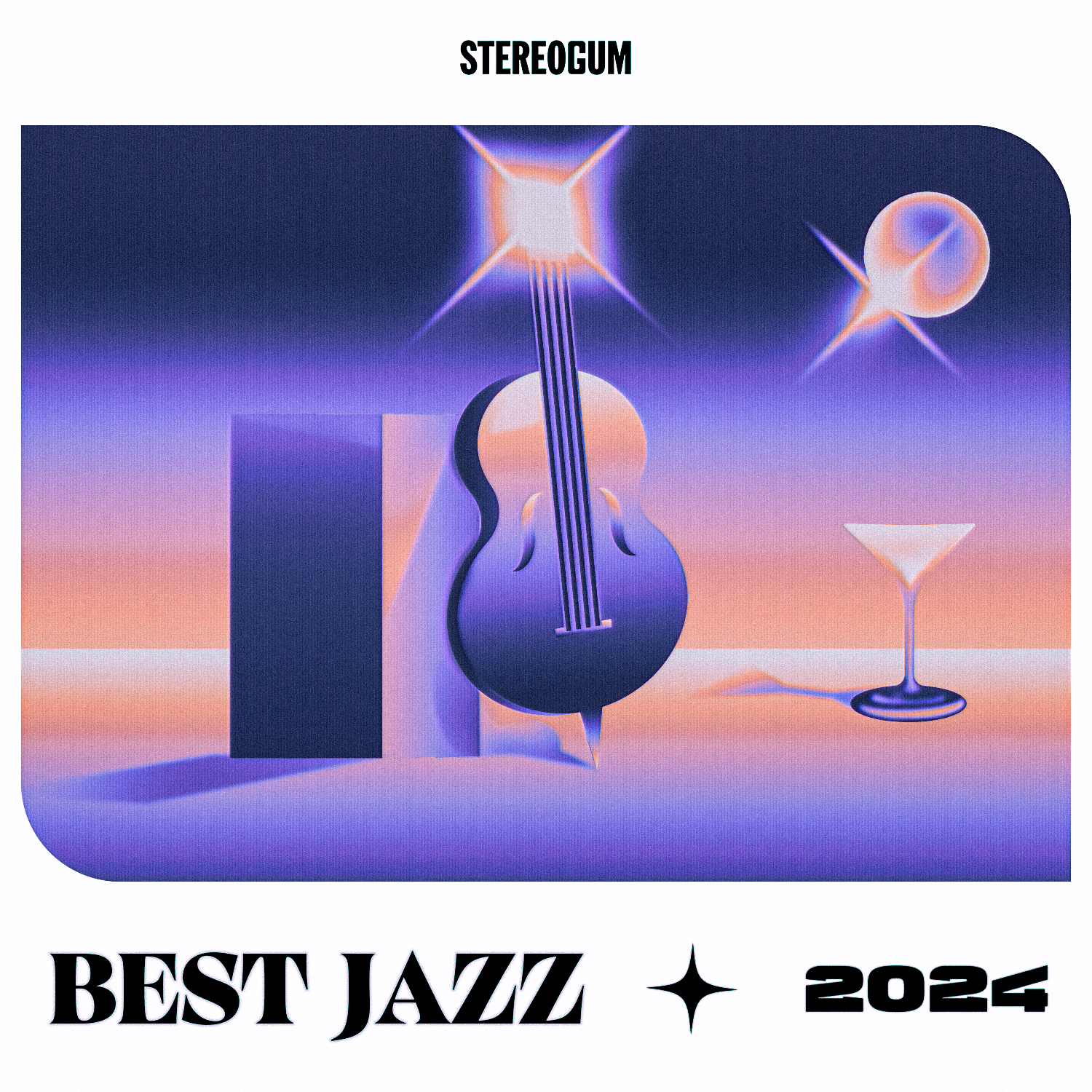It's time for another Stereogum tradition: itemizing our least favorite music trends of the year. And boy, did 2024 give us some big ones, some real heavy shit; this is gonna be a long one. Let's kick things off with a trend that was brewing in 2023, but really popped off this year...
AI in music isn't going anywhere
There are lots of reasons to oppose generative AI: copyright and privacy violations; corporations using it as a tool to put artists out of work; the way it encourages an indifferent approach to artmaking (as Brian Eno wrote about well); the data centers that power it all causing environmental destruction at an unprecedented scale and also literally destroying people's ears.
But artificial intelligence is so ubiquitous, so beloved of industry suits, and so willing to throw money at artists in exchange for promo and legitimacy, that it's becoming impossible to maintain a principled stance. This is kind of analogous to the "good art by bad people" debate: it's easy to boycott work by artists you don't like — Kanye West recently used AI to recreate his very-much-alive daughters in the video for his and Ty Dolla $ign’s Yuno Miles collab— much harder when there's an emotional connection. Are you a Björk stan? Time to grapple with her working with AI companies for her art-world installations. How about Mannequin Pussy? They made a video using generative AI that got a lot of pushback. So did Washed Out. So did IDLES. So did Rush’s Alex Lifeson. Meanwhile, Kesha, Tears for Fears, and Tedeschi Trucks Band all shared cover art or concert posters created with AI. This list is incomplete and almost certainly includes a few artists you love. (The surprising one for me: I loved Metronomy drummer Anna Prior's record Almost Love, and only found out that its several music videos incorporated AI imagery while reporting this list.)
Suppose you're determined to maintain a hard line, though, abandoning your fandoms to boycott everything AI. That's a harder task than it may seem. You can't necessarily spot AI work by its quality; humans are just as capable of producing low-effort, cynical, derivative work as machines. Was Katy Perry's "Woman's World" teaser AI slop or – like its accompanying record – the good ol' human variety? You can't rely on "AI detection" tools either since they're prone to false positives, claiming something was AI-generated when it wasn't. Were Drake's vocals on Toronto "parody rapper" Snowd4y's "Wah Gwan Delilah" AI deepfakes, or Drake collecting yet another paycheck by giving a C-lister an especially phoned-in verse? According to two AI-detection companies Billboard contacted: inconclusive.
Meanwhile, it's a near-certainty that songwriters and producers are either quietly using generative AI to write lyrics, doctor vocal takes, and make beats, or outsourcing the process to companies that are. The biggest AI-involved hit of 2024 (that we know about) was "BBL Drizzy," a late entry into the Kendrick Lamar-Drake feud. Producer Metro Boomin, in longstanding rap tradition, invited rappers both established and aspiring to jump on the beat and further desecrate Drake's proverbial course.
The vibes quickly went rancid: it soon came out that comedian, "content creator," and clout-chaser King Willonius fed prompts to a generator by AI startup Udio (which is being sued by the RIAA, incidentally) for the beat and used Midjourney to generate the cover art. (This is actually multiple instances of AI threatening people's livelihoods: obviously an AI beat is a beat not created by a human, but producers, reluctant to pay the licensing costs for big splashy samples, have long hired "sample replay" companies that get uncredited session singers to quietly re-sing the original vocals.) .Willonius did write the Drake disses himself – or so he says, but why would he lie about one AI but admit to two others?
All this was news to Metro Boomin (or so he says). If the megaproducer couldn't tell the difference, what hope do laypeople have? Spotify, meanwhile, is being accused of pushing "ghost artists" in its playlists — it’s unclear if any of them are AI-generated. Related: you can now get "Jerry Garcia" to read this article to you in 32 languages.
I went to the SM building in Seoul today and so many “fans” sent funeral flowers demanding Seunghan be kicked out of RIIZE…these ppl need to be locked up in the psych ward (also there were SO many flowers) pic.twitter.com/kNrh1sBrDu
— r (@joonscastle) October 13, 2024
Musicians posting heavily branded Instagram reminders about imposter accounts
If you're unfortunate enough to have a catfish or scammer or disgruntled ex-friend (or, purely hypothetically, a disgruntled stan) make a fake Instagram profile impersonating you, then you already know that Instagram will most likely do absolutely nothing about it. You can report them all you want, but you'll most likely hear back within five minutes from an AI that actually, it's totally OK to maliciously impersonate someone else. Multiple Stereogum staffers have been in this situation.
And apparently this isn't just a problem for us normies. Famous musicians deal with this too, and they have enough problems getting them taken down that their teams regularly clutter their feeds with constant Instagram posts warning fans not to fall for the fake accounts, no matter how many surprise messages they receive with promises of free tickets, backstage passages, and/or marriage proposals. It’s not a new thing, but this year it was worse than ever.
Obviously, it's understandable and admirable that musicians want to protect their fans (despite the fact that anyone seeing these posts is already interacting with the real account). But artists are still beholden to the algorithms of the feed, and they too must feed it the eye-catching content it wants.
So while some bands just throw up a quick, no-nonsense text post or screenshot, many artists feel the need to turn their reminders into polished, on-brand communications. A quick sampling: Dwight Yoakam posted a chiaroscuro stage shot with his message. Nancy Sinatra made her reminder pretty in pink. Chris Isaak went for the gritty Americana look; Alice Cooper's alert looked like an edgy teen's Geocities page. The vibe is vaguely self-promotional and impersonal – although, given how friendly scammers' DMs tend to be, maybe that's the point?
In any case, they were in good company this year — Lucinda Williams, Toto, Carl Cox, Dogstar, Testament, Steve Perry, Pixies, Simple Minds, Billy Morrison, Jamey Johnson, Warren Ellis, Billy Joel, Trace Adkins, Melissa Etheridge, Van Morrison, and Tom Jones were also among the many, many artists who had to share warnings this year. And it’s not just boomer musicians who have to deal with this shit; if you’ve been DMing with Tegan Quin, we have some bad news.
Industry achievements by nepo babies not even in their tweens
Let's close this out quick. The term "nepo babies" wasn't supposed to mean actual babies, but that seems to be how things are trending. Beyoncé and Jay-Z's daughter Rumi Carter (age 6) broke her older sister Blue Ivy's record by becoming the youngest female artist to make Billboard's Hot 100, with her appearance on Bey's "Protector." Kanye West and Kim Kardashian's daughter North West also hit the Hot 100 at 10 years old by guesting on her dad and Ty Dolla $ign’s Vultures 1. Meanwhile Hazel Monét (a toddler) tagged along for her mother Victoria's "Hollywood," making her the youngest Grammy nominee ever. (Counterexample: Willow (age 10)'s "Whip My Hair" is good actually.)
Dis(honorable) mentions
This list is already long enough, but to everyone who "went country" on albums or collab singles this year— Beyoncé, Post Malone, Machine Gun Kelly, Avril Lavigne, Dua Lipa, Lana Del Rey, Yung Gravy, Zayn, Monica, NLE Choppa, Shawn Mendes, Kesha, Gwen Stefani, Sully Erna, Chappell Roan, Anthony Raneri, Bill Medley, the Wiggles, Ringo Starr (again), et al. — congrats, but Julien Baker and Torres are the last we’ll allow.
And! Those "Great Depression-coded" lookalike contests for musicians like Zayn, Clairo, Harry Styles, Drake, and even Mk.gee? Let’s leave them in 2024.
The Top 10 finalists for the Drake Era’s lookalike contest pic.twitter.com/h4cMtre8jz
— Drake Direct (@DrakeDirect_) December 14, 2024
